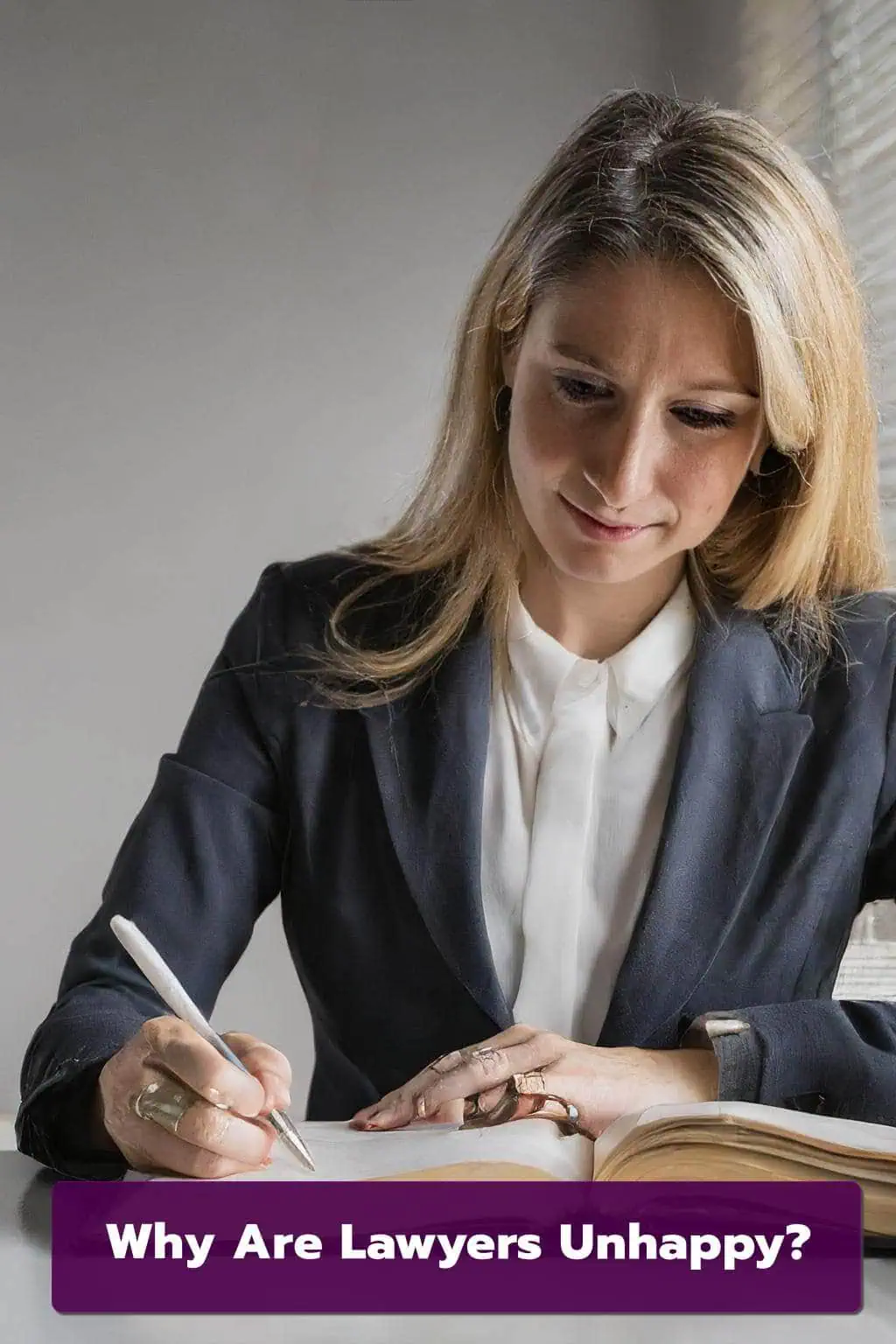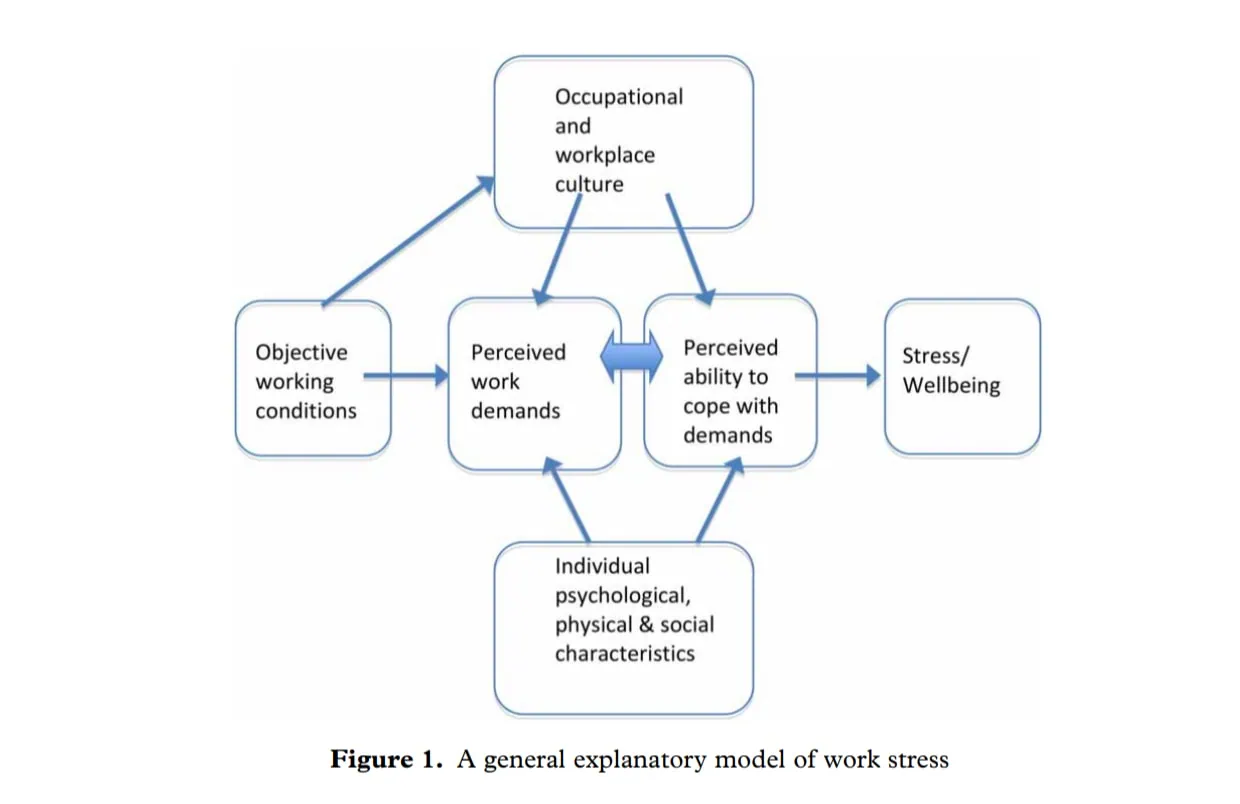Today's Tuesday • 14 mins read
— By Dr. Sandip Roy.
Did you know that the average “lawyer personality” has a hard time finding a partner or lover outside their profession?
The legal profession carries a heavy social stigma. An unusually high number of lawyers fear judgment or rejection (Kelk & Medlow, 2010):
- 83.6% from strangers
- 66.9% from employers
- 30.6% from friends
- 20.4% from family
Being a lawyer might be the least happy job in the world. Surveys reveal lawyers experience high levels of stress and depression.
- Law students were 3.5 times more likely to be highly distressed than the general public. 35.4% had high or very high distress. 35.1% had experienced depression (Kelk & Medlow, 2010).
- A national survey of Australian lawyers found that 26–32% of respondents reported moderate to extreme symptoms of depression, stress, and anxiety (Chan et al., 2014).
- Law school enrollment has been linked to higher levels of emotional distress, depression, anxiety, and substance abuse (Daicoff, 2004; Mertz, 2007; Krieger, 2008; Peterson, 2009).
But why are the lawyers of our world generally dissatisfied and unhappy?
3 Truths About Lawyers
- Most people have a negative opinion of the legal profession as a whole and think lawyers are largely greedy, dishonest, and unscrupulous.
- Cheerful and happy lawyers are often seen as less competent and more devious, so lawyers may deliberately try to look glum or somber.
- Students enter law school with good mental health but report a rapid decline during their studies. Symptoms worsen throughout their law degree and may persist years after graduation.
7 Specific Reasons Why Lawyers Are Unhappy
Lawyers have higher rates of depression, stress, insomnia, unhealthy eating habits, alcohol use disorder, smoking, weight issues, migraines, and chronic pain of unknown origin.
Here are the seven reasons that make lawyers unhappy:
1. Lawyers Work In Toxic Environments
Lawyers mostly work out of a boiler room of conflicts, pressures, and failures. It is a situation they would rather not be in, and yet where they have to be.
- First, they work in a dog-eat-dog environment, giving each other distress, despair, and threats.
- Second, their clients trust them with their most private secrets, including the illegal acts they committed, while expecting their counsel to draw favorable judgments. This can get quite stressful for the lawyers.
- Third, the public routinely subjects them to snide remarks, unfair prejudices, and even online trolling. Beyond a point, lawyers are susceptible to insults and criticism, just like everyone else.
Such toxic workplaces offer little psychological safety. Often, this leads to depression and other mental health issues, such as substance abuse and self-harm.
Their work settings may trigger panic attacks, feelings of shame and remorse, and post-traumatic stress disorder (PTSD) in some of them.
Working in such stressful environments can also affect their relationships. A typical “lawyer personality” has trouble finding a partner or lover from outside their profession.
The worst part is that negative mental health effects can last for years after a lawyer leaves the firm and the courthouse.

2. Lawyers Don’t Have A Work-Life Balance
Given how the legal profession has evolved, it is nearly unimaginable for a lawyer to maintain a healthy work-life balance.
Every working person needs to have a healthy life away from their job. Some lawyers may have it easier because they have set hours, but for most lawyers, work takes over their personal lives.
Lawyers today spend more time neck-deep in work. This is especially true for attorneys in legal firms and those in private practice. Specialty divisions, like tax lawyers, have surges of extra work during certain seasons.
Most lawyers work long hours, with roughly half of them working more than 40 hours per week, and taking their work home with them. When a case is being tried, they often cut back on sleep for extensive preparation, research, client meetings, and paperwork labor.
Many of them don’t take breaks or vacations, and frequently take work with them on holidays.
All of that comes with an eye on how to outdo the opposite lawyer.
Many lawyers are unable to relax at home, separate work issues from family stress, and find little time to exercise.
3. Most Clients Do Not Value Their Lawyers
It is no secret that most clients do not value their lawyers. In a recent survey, only 18% of respondents said they felt their lawyer was a valuable asset to them.
People view lawyers as narcissistic manipulators, and actually, they may be right to assume so.
Manipulation is defined as influencing or attempting to influence the behaviors or emotions of others for one’s own gain.
Lawyers, by that definition, are manipulators, if not outright liars. They always argue their cases in ways that benefit their clients while disfavoring their opponents, regardless of which party is guilty.
This is because there are many misconceptions about the role of a lawyer in the legal process, and many people wrongly assume that lawyers are only responsible for litigation.
The truth is, lawyers have an important role to play at every stage of the legal process and can help you achieve your goals in ways you may never have considered before. For this, many hold them in high regard.
Of course, it cannot be swept under the carpet that most lawyers are well versed in “making truths out of lies,” though we can be certain that they do not practice dishonesty at all times.
“Do you think lawyers are manipulative?”
— Andrew Weill, Tax Attorney (in a joking tone)
“Tell me how much you’re willing to pay, and I’ll write an answer that fits your budget.”
4. Lawyers Feel They Don’t Get Paid Enough
Most lawyers get to charge clients by the hour, but most consider that the pay doesn’t match the efforts they put into research, paperwork, keeping their clients happy and well-advised, and appearing in trials.
The Martindale-Avvo Attorney Compensation Report, 2020, found:
- 63% of attorneys believe they are fairly compensated for their work, while 37% believe they are financially underpaid.
- Overall, 69% of attorneys said they would choose the same path to become an attorney if given the chance again. 31% of lawyers responded that if given another chance, they would not have become lawyers.
- Attorneys representing corporations earned an average of $238,000, while attorneys who mainly represented consumers earned an average of $181,000 in an year.
Given the quantum of professional stress, lawyers’ feeling that they are underpaid may be justified.
The feeling of dissatisfaction among the lawyers can be traced in part to the high cost of living and the hefty law school loan burden.

5. A Law Career Is Difficult
The legal profession has many tough challenges, including the costs of law education and high student loan debts.
a. Long Training. Becoming a lawyer is lengthy and difficult. One must go through 7 years of additional schooling after high school to become a lawyer. It takes three years of study to obtain their Juris Doctor degree. Then they must pass the state’s bar examination. Finally, they need attendance at Continuing Legal Education (CLE).
b. Fierce Competition. There are more lawyers than legal jobs available. The fierce competition is cutting the cost of legal services. A significant part of legal work has moved to paralegal firms, dispute mediation bodies, and social organizations. Many law school graduates start out in non-legal fields. Many leave their firms after 2–3 years to work for corporations, non-profits, law schools, or the government.
c. High Expectations. Lawyers are held to high expectations and expected to perform smoothly under pressure. Clients want them to have top-notch expertise and to always get the verdict in their favor. This pressure to win their cases often puts them in a zero-sum game. Then, their firms expect them to be fine communicators, influencers, and even spin doctors. Furthermore, their audience expects them to remain organized and composed at all times, which keeps them from “letting their hair down” even at fun social events.
6. Lawyers Are Pessimistic
Lawyers are more pessimistic than the general public. Experts feel lawyers are professionally trained to be pessimistic.
Aspiring lawyers are trained in “defensive pessimism,” and the best students in a law school are the worst pessimists.
Now, the thing is, while professional pessimism improves their performance, it also spills over into their personal lives. It makes them see every argument as a zero-sum game where they must win by any trick in the book. It often creates a toxic climate in their families and personal relationships.
Martin Seligman, the father of positive psychology and author of Authentic Happiness, tells us:
Pessimists do better at law. We tested the entire entering class of the Virginia Law School in 1990 with a variant of the optimism-pessimism test. These students were then followed throughout the three years of law school. In sharp contrast with the results of prior studies in other realms of life, the pessimistic law students on average faired better than their optimistic peers. Specifically, the pessimist outperformed more optimistic students on the traditional measures of achievement, such as grade point averages and law journal success.
Pessimism is seen as a plus among lawyers, because seeing troubles as pervasive and permanent is a component of what the law profession deems prudence. A prudent perspective enables a good lawyer to see every conceivable snare and catastrophe that might occur in any transaction. The ability to anticipate the whole range of problems and betrayals that non-lawyers are blind to is highly adaptive for the practicing lawyer who can, by so doing, help his clients defend against these far-fetched eventualities. If you don’t have this prudence to begin with, law school will seek to teach it to you. Unfortunately, though, a trait that makes you good at your profession does not always make you a happy human being.
He further says,
These pessimists tend to attribute the causes of negative events as stable and global factors (“It’s going to last forever, and it’s going to undermine everything.”). The pessimist views bad events as pervasive, permanent, and uncontrollable, while the optimist sees them as local, temporary and changeable.
7. High Stress, Depression, Compassion Fatigue
Current research suggests that work stress results from the interaction between an individual and the work environment.

Lawyers have a high burnout rate. A 2021 survey by the American Bar Association revealed:
- 67% of women lawyers reported higher levels of stress,
- 38% said they often work long hours,
- 9% said they “never stop working,”
- 40% reported an increase in their total work-related stress.
Most law firms are like gladiator rings, with the trophy going to the attorneys who can handle the most pressure.
Lawyers are constantly stressed, even though many believe that lawyers cause stress for others while thriving in it. The most stressed are often those who argue their cases in court under the watchful eyes of the client, the jury, the judge, and occasionally the media and the public.

The constant high stress can cause them to have months-long burnout and mental fatigue.
Paula Davis, a former lawyer and author of the research-driven book Beating Burnout at Work: Why Teams Hold the Secret to Well-Being and Resilience, identifies the core 6 job demands that can lead to burnout:
- Lack of autonomy
- Values disconnect
- Lack of recognition
- Lack of support from leaders and colleagues
- High workload and work pressure, inadequate staffing
- Unfairness (lack of transparency; arbitrary decision-making; favoritism)
Lawyers are more depressed than the average population.
Researchers at Johns Hopkins University found that out of 104 occupations, lawyers were the most depressed, suffering from depression 3.6 times more than the average worker (The Lawyers’ Epidemic: Depression, Suicide and Substance Abuse, 1990).
Lawyers also have much higher rates of alcoholism and illegal drug usage than non-lawyers. Divorce tends to be more common among lawyers, particularly women, than among other occupations.
Lawyering is a high-empathy job. One must put oneself in the client’s shoes to understand their position effectively.
Compassion fatigue is one of the most dangerous effects of having empathy.
Compassion fatigue means getting exhausted while trying to relieve the pain of another. Also known as secondary trauma and secondary stress, it occurs when a person’s sense of well-being is harmed by constant contact with another person’s tragedy.
“Without proper boundaries, lawyers can be overwhelmed by the trauma and stress of their clients.”
— Gray Robinson, Above The Law
Normally, it is seen in healthcare and social work. However, lawyers can also get drained by prolonged exposure to clients struggling with trauma or stress.
Symptoms of compassion fatigue include emotional and physical exhaustion, anger, irritability, addiction to mood-enhancing drugs, career burnout, and impaired judgment.
Compassion fatigue can cause an existential crisis when everything in their career and life seems to look meaningless. Some lawyers, for this reason, leave the profession much sooner than expected.
How Can Lawyer Happiness Be Improved?
There are four realistic ways that lawyer happiness can be improved:
1. Social Support Networks
The legal profession is largely a game of one-upmanship. So, maybe more than any other professional, they must try to build and maintain strong, supportive social networks outside of work.
Spend time with people who have nothing to do with the legal profession. This could help open new perspectives on your issues, and cultivate new ways of learning, understanding, and handling stress.
Every day, check in with your family, best friends, and other loved ones. Reconnect with people you lost touch with, but loved to be with.
2. Mandatory Paid Holidays
Everyone needs breaks from work to recharge their batteries. However, it is quite alarming that 32% of lawyers report they feel pressure “not” to take vacation time.
Law firms should take measures to improve their lawyers’ work-life balance and increase their happiness levels.
A great way to make sure that a lawyer on the job takes a holiday is to buy them a holiday package.
One must also avoid working vacations. It would also help if holidays were made mandatory and others in the office were barred from calling them during their vacation.
Time away from work allows people to try new things and create new brain pathways, making the brain more adaptable and creative.
3. Healthy Self-Care Routines
Self-care could mean developing interests outside of your career and going after a long-neglected passion. Make it a point to habitually engage in non-work-related hobbies and leisure activities.
Danielle Caminiti, a New York attorney for two decades, reinvented herself during the 2020 pandemic. Her cookbook, From Courtroom to Cucina: 70 Authentic Recipes That Took Me From Litigation to Salivation, inspired by her Italian heritage, received a lot of love from the readers.
Self-care could mean finding experiences that give you healthy joy and practicing them daily, like a daily habit of exercising, taking barefoot walks on the morning grass, or watching your old vacation pictures.
Focus on the big-picture benefits of living a balanced life, and you’ll go a long way toward prospering in your working environment.
Make your mental health a priority. Take care to reduce your mental load through meditative practices like mindfulness meditation, meditative dance, or meditative art.
[Mindfulness Meditation In Easy Steps (You Can Do It In Just 3 Minutes)]
4. Remote Work
Allowing lawyers to work from remote locations can cut the time of commuting, reduce their expenses, decrease their work stress, and increase employee satisfaction.
According to Pennsylvania State University research, remote work does not blur the lines between work and family. In fact, it reduces the conflicts that typically occur between work and family life.
It also leads to better relationships between employees and their managers and coworkers, provided they keep regular contact.
Employees who work from home are also far less likely to quit. This white paper from Thomson Reuters discusses effective ways to employ virtual engagement with clients: Six Ways Firms Can Win With Legal Technology In An Uncertain Market.
Of course, remote work is not an option for court appearance days or client meetings that require face-to-face conversations.
One last bit of advice for unhappy lawyers: talk to someone when you’re feeling overwhelmed, whether it’s a colleague, a lawyer mentor, or a mental health professional.
Final Words
Lawyers have higher levels of anxiety, depression, alcoholism, and suicidality than the general populace. Those are heartbreaking facts.
Who can deny that our attitudes toward them cause their mental health conditions, at least in part, rather than only their professional attitude?
Miguel Ángel Campos, University of Alicante, analyzed the practical structure of lawyer jokes to discover that a cultural stereotype exists portraying the profession as dishonest (Campos, 2016. Lawyers, great lawyers, and liars: The metapragmatics of lying in lawyer jokes).
Don’t you think it’s time we gave them a break from all the harsh judgment, or at the very least, see them as vulnerable people dealing with negative issues of humankind?
√ Also Read: How Hopeful Are You In Life? Take This Quick Test.
√ Please spread the word if you found this helpful.
